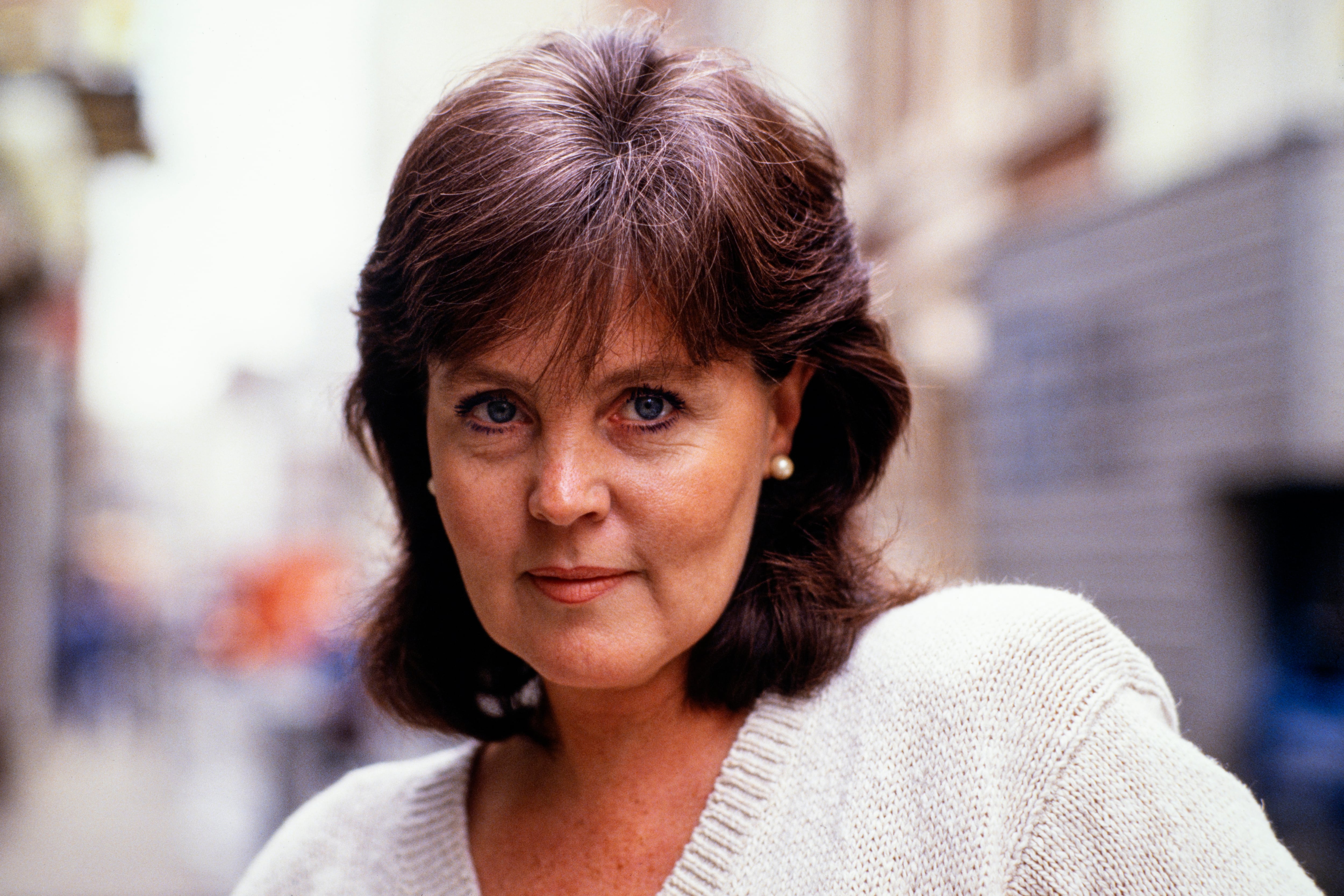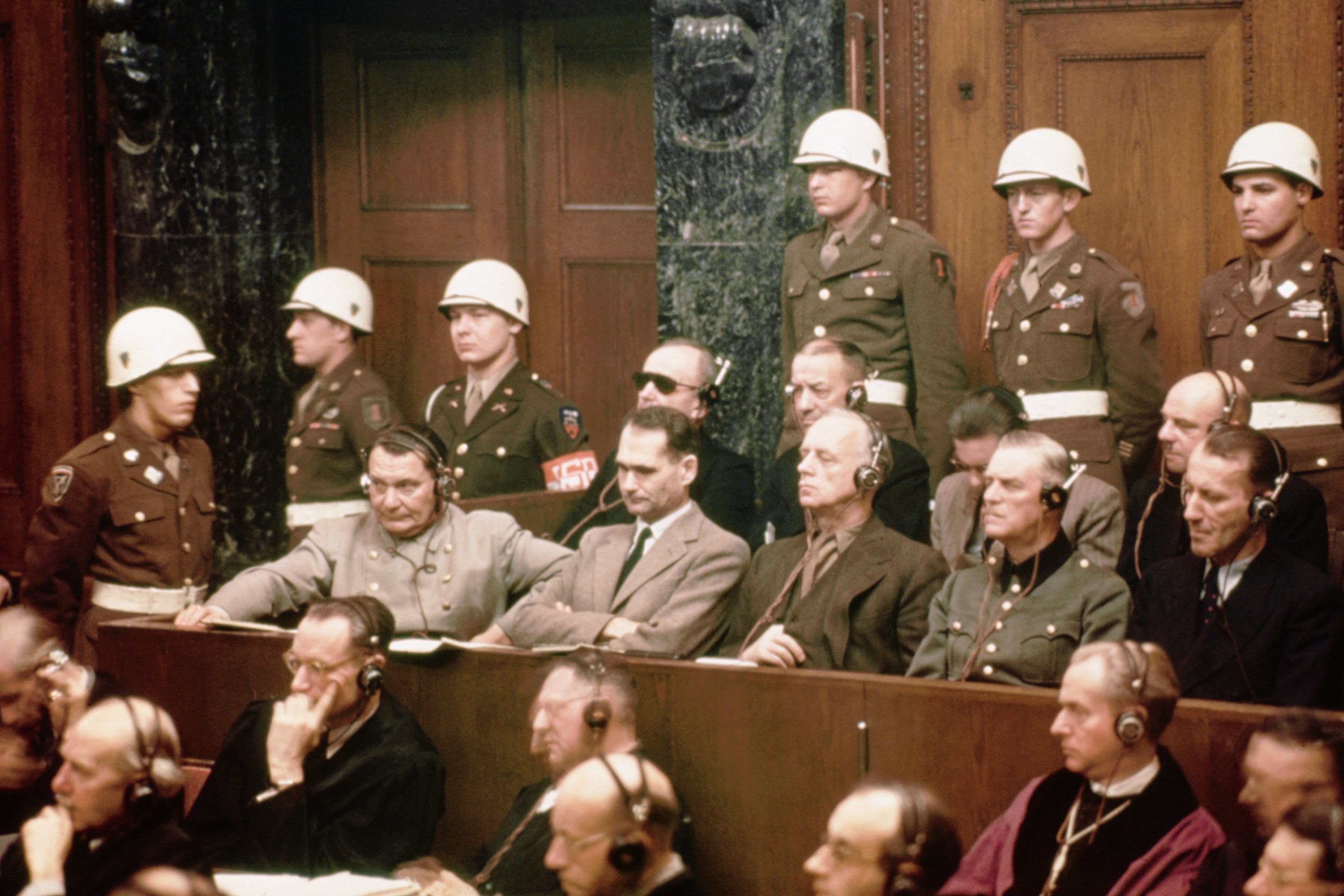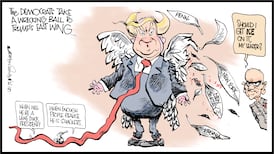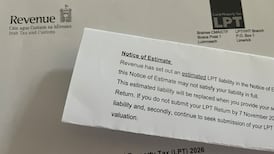It is hard to avoid a sinking feeling that the people who sat around the dinner parties of south Co Dublin last weekend saying John Collison was on the money when he called for Ministers to take back power from quangos will be sitting around the same tables this weekend saying the boards of St Vincent’s hospital and the 15 other voluntary hospitals are dead right to tell Jennifer Carroll MacNeill to take a hike. These institutions also include St Vincent’s, the Mater, Beaumont and the main maternity and children’s hospitals.
The attempts of the Minister for Health to impose some sort of discipline on the independent fiefdoms that are the State’s voluntary hospitals seems to have reached a decisive moment.
After years of trying to get the hospitals to sign up to the same system of financial control as most of the rest of the health service, Carroll MacNeill seems to have run out of patience. The Minister for Public Expenditure, Jack Chambers, has backed her.
Last month she wrote to the voluntary hospitals, pointing out that as “a guardian of the health system on behalf of the people of Ireland, I expect that measures to ensure alignment of financial reporting, including deployment of the IFMS [Integrated Financial Management System], where this has not already happened, to be enthusiastically implemented without delay”.
READ MORE
Chambers issued his own missive: “Given the State’s significant investment to date in IFMS, it is crucial that it is fully implemented across the sector by the HSE in order to maximise the financial control benefits of the system, particularly in the context of the ongoing significant investment in all of our hospitals.”
Where it goes from here is not clear; the courts would be a good bet.
The stand-off between the voluntary hospitals and the Government that funds them to the tune of €5 billion a year is symptomatic of many things that hamper progress in Ireland.
But it also smacks of hubris. It seems extraordinary that organisations that are funded by the State will not comply with its wish to know what they do with its money. In essence, they are saying we know what we are doing; trust us. That rarely ends well.
This comes from a position of strength. They know the Government is not going to withdraw the funding. But there is more to it. The sort of successful medic who ends up on the board of a hospital tends not to suffer from issues of self-esteem – although it might be leaning a little too much into the “God complex” cliche to argue that they simply think they know better that the HSE, the Department of Health and the Minister.
In fact, medics tend to be in the minority on the boards of the voluntary hospitals, even if they might be disproportionately influential. The bulk of the directors of the hospitals are drawn from the upper reaches of the Irish corporate world; former partners in large law and accountancy practices, plus the odd corporate financier. Representatives of the religious orders and charitable bodies that established many of them are few and far between. Representatives of patients are all but non-existent.
Most of the voluntary hospital boards are structured as trusts, charities or other ownership arrangements, which makes the boards powerful. There are no shareholders in the traditional sense. (The Irish Times has a not-dissimilar structure: owned by a trust and with a board of directors.)
One thing the boards of the voluntary hospitals seem to share is a healthy disregard for the HSE and the department. Obviously, the State has not helped itself much in this regard, as it lurched from one health crisis and scandal to the next over the decades, but there is no objective evidence that voluntary hospitals are more efficient than those run directly by the State. In fact that is the problem. There is no evidence full stop, due to the voluntary hospitals’ refusal to provide their paymaster with the financial information they seek.
Most of us would assume that he (or she) who pays the piper should get to call the tune, but the voluntary hospitals have had little difficulty in coming up with reason as to why this should not be the case, and that financial control must remain with the voluntary hospital board. Many of their objections are technical and legalistic and easily resolved by Government undertakings.
This is simply a battle about who should be in control. The boards may argue they are just acting in the best interest of their hospitals and should be judged on their performance. But that does not trump the taxpayers’ right to know where its money is going. Recent stories about the pay of hospital chief executives and contracts to companies owned by staff members highlight this point.
The stakes are high. If the hospitals don’t accede to Carroll MacNeill’s demand she will have little option but to carry through on her threat to legislate to force them to comply or else look impotent. It is an argument the Government cannot afford to lose.















